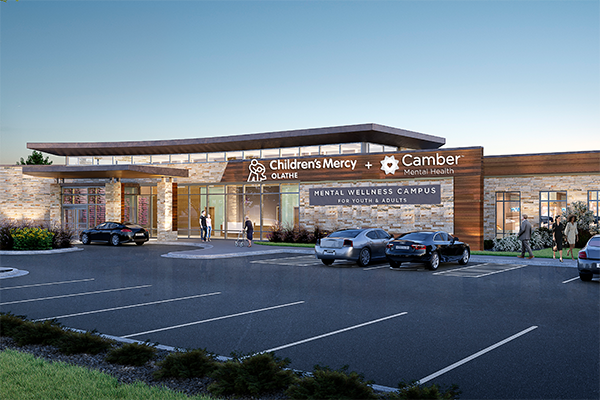KVC Prairie Ridge Hospital Employees Cultivate Social Innovation Tools
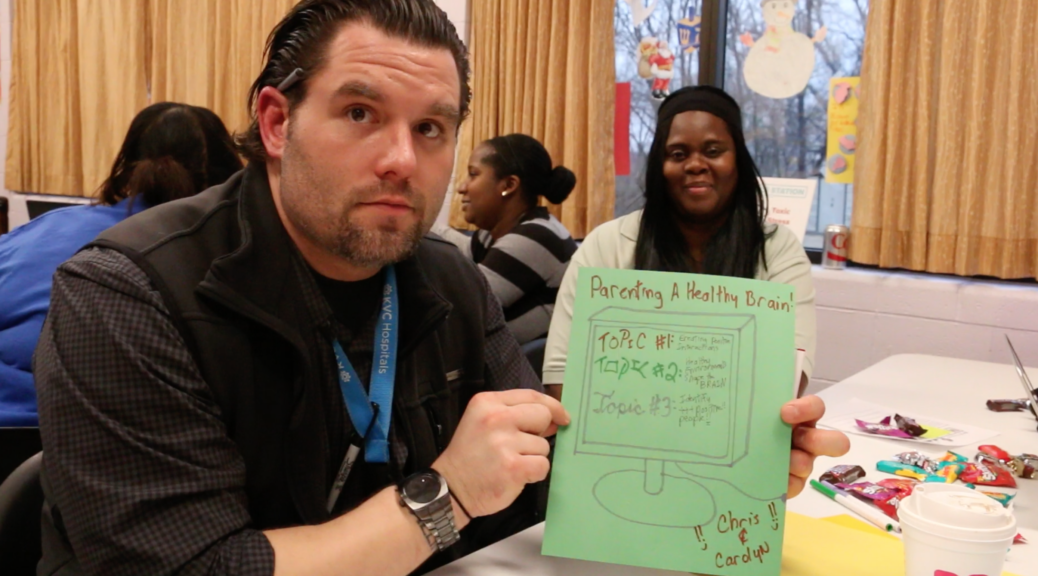
Every day, the caring staff at KVC Hospitals help children and teens in our care. They get to know them personally, help them with their treatment plans, and help them to understand why they might be struggling with depression, anxiety or other mental illness. The tools that these employees use to connect with youth often need to evolve in order to help them communicate how their brain works and understanding emotions. Earlier this year, employees at KVC Prairie Ridge Hospital gathered to share their ideas for new tools during the MakerSpace for Social Innovation. In partnership with KVC Institute’s neuroscience initiative, this MakerSpace allowed time for the staff who directly interact with the children and teens at KVC Prairie Ridge Hospital to create tools that will help better educate and treat those in care.
Five stations were set up to allow different focuses of the science subjects;
1. Brain Architecture
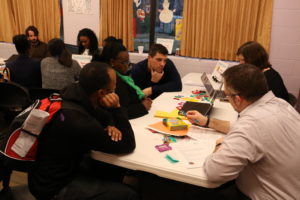 This station allowed staff to create tools around the topic of how the brain develops. For a behavioral health technician or a counselor at KVC, talking to youth about how their brain works helps them to understand its functions and understand themselves and others around them better.
This station allowed staff to create tools around the topic of how the brain develops. For a behavioral health technician or a counselor at KVC, talking to youth about how their brain works helps them to understand its functions and understand themselves and others around them better.
2. Serve and Return
At the serve and return station, staff focused on creating tools to help explain that the responses and interactions between a caring adult and a youth are important. When a child gestures, talks or cries, an appropriate response from an adult helps to develop and grow that relationship.
3. Toxic Stress
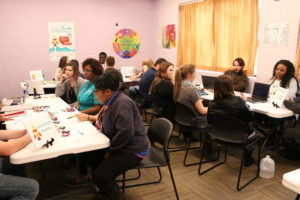 Stress is a common feeling for many in care. For most people, a stressful situation causes their muscles to tense and their heart to beat faster, but when that stressful situation passes, their body returns to normal and they feel calm. Yet, many of those in care are in a constant and elevated state of stress due to their exposure to ongoing, toxic stress. Tools developed at this station focused on explaining stress to children and teens, and how to control and regulate their own levels of stress.
Stress is a common feeling for many in care. For most people, a stressful situation causes their muscles to tense and their heart to beat faster, but when that stressful situation passes, their body returns to normal and they feel calm. Yet, many of those in care are in a constant and elevated state of stress due to their exposure to ongoing, toxic stress. Tools developed at this station focused on explaining stress to children and teens, and how to control and regulate their own levels of stress.
4. Executive Function
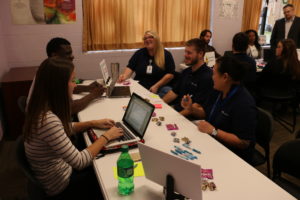 At the executive function station, KVC staff created an activity or tool that would help explain the mental processes youth need to complete multiple tasks, and focus or remember instructions. When executive function skills are developed, a person is able to recall and store memories, exhibit self-control and mental flexibility to help focus or shift attention at different settings.
At the executive function station, KVC staff created an activity or tool that would help explain the mental processes youth need to complete multiple tasks, and focus or remember instructions. When executive function skills are developed, a person is able to recall and store memories, exhibit self-control and mental flexibility to help focus or shift attention at different settings.
5. Resilience Scale
You may have heard the term “children are resilient,” “she was born resilient,” or something similar? Employees began building activities and tools to help youth understand positive and negative interactions and the effects each one might have on different people and explain resiliency.
Throughout the course of the day, over 50 employees participated in the MakerSpace resulting in 13 plans for tools and activities. These tools will become actual items used in treatment at KVC Hospitals. With the great outcome of the event and mission to push for innovation, additional MakerSpace days are currently being planned for other locations and departments throughout KVC Health Systems.
Click here learn more about the KVC Institute or contact us to find out more about the MakerSpace for Social Innovation and the services offered at KVC Prairie Ridge Hospital.



